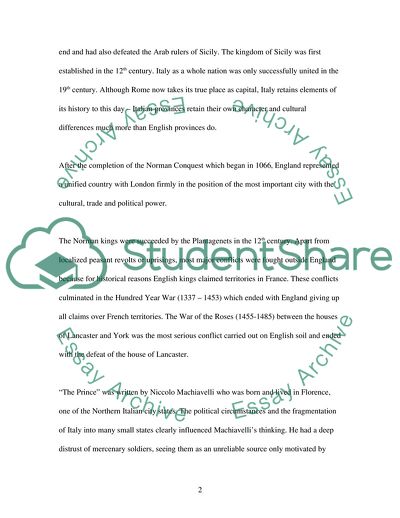Italy and England During the Renaissance and Machiavelli's Prince and Thomas More's Utopia Essay Example | Topics and Well Written Essays - 1500 words. https://studentshare.org/literature/1729423-italy-and-england-during-the-renaissance-and-machiavellis-prince-and-thomas-mores-utopia-compare-and-contrast-the-histories-of-italy-and-england-from-about-1000-up-to-about-1520-with-machiavellis-prince-and-mores-utopia
Italy and England During the Renaissance and Machiavelli's Prince and Thomas More'S Utopia Essay Example | Topics and Well Written Essays - 1500 Words. https://studentshare.org/literature/1729423-italy-and-england-during-the-renaissance-and-machiavellis-prince-and-thomas-mores-utopia-compare-and-contrast-the-histories-of-italy-and-england-from-about-1000-up-to-about-1520-with-machiavellis-prince-and-mores-utopia.


